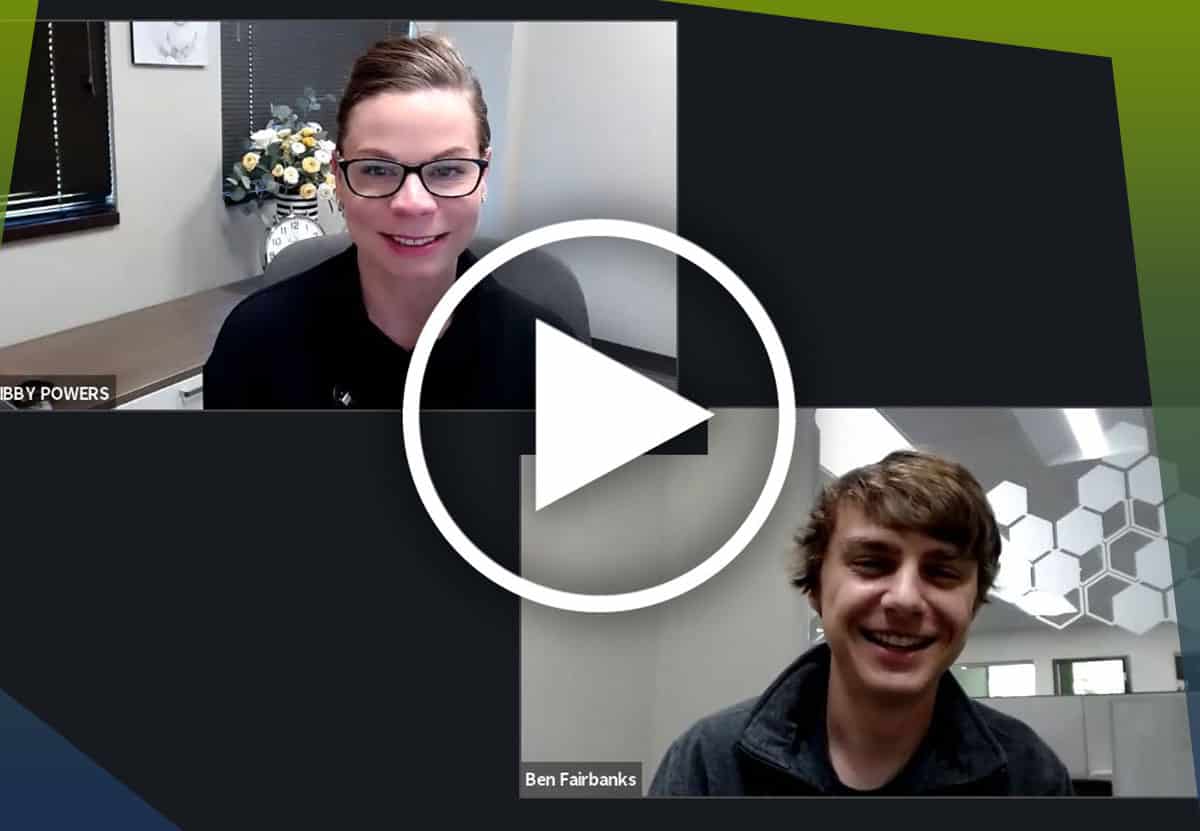Libby Powers and Ben Fairbanks of Anderson Technologies dive into a recent new client’s story. This non-profit struggled to deal with a hack of their former server and needed a comprehensive IT solution in one vendor. Now, with a solid foundation, they know their data is protected.
Transcript
Libby Powers: Welcome to another edition of Byte-Size Tech. I’m Libby Powers, and today I am joined by one of our team members, Ben Fairbanks. Say hi, Ben.
Ben Fairbanks: Hello.
Libby Powers: He is one of our system administrators here at Anderson Technologies. I really appreciate you sitting down with me today, because I was hoping to talk about a new client we recently brought on that I heard some of the team talking about. It was a not-for-profit. Is that correct?
Ben Fairbanks: Yeah, that’s right. And when we first heard about them, they were calling us because they were struggling to get through the after effects of their server being hacked.
Libby Powers: Oh, the not-for-profit server was actually hacked?
Ben Fairbanks: That’s right. This client primarily relied on contractors and individual vendors do their jobs for them. It seemed that a previous IT vendor had gotten their networks onto a new server, and things seem to be working great. But that vendor failed to properly turn off or secure their old server, and that’s where the criminals got it.
Libby Powers: Oh, criminals? So we’re talking about cyber crime and organized crime.
Ben Fairbanks: Yeah, all the above pretty scary stuff. But thankfully, no personal information or PI was accessed. But this client still had to deal with the red tape of reporting the issue to the authorities, digging through all their systems to review what had been accessed, and ensuring that the new server wasn’t truly untouched.
Libby Powers: Wow. So luckily they didn’t put ransomware or anything on these on the server. But the hack was still a major pain, I’m guessing, right?
Ben Fairbanks: Of course, yeah. The cost and man hours is something that no client, let alone a nonprofit with a set budget, wants to suddenly have to deal with. In the process of reaching out to their members in the cleanup, they were recommended to call us. At first they weren’t sure. They were based in Pennsylvania, and we’re in St. Louis.
Libby Powers: Yeah, I could see how that would be a little scary if you’re multiple states away and your IT vendor is a flight away. Right?
Ben Fairbanks: Yeah, of course. And that’s definitely something that every organization is going to have to weigh. But a great part about doing IT is that 90 to 95% of the work can be done remotely. Once we got signed on with this client, we sent two of our expert team members down on location to get all the hardware, wires, and their network fully set up and documented. At the end of multiple days, it took about 50 hours total to get them up and going. From there, we’ve had smooth sailing just operating remotely.
Libby Powers: So it took you guys 50 hours to undo this hack?
Ben Fairbanks: Yeah, totally. And that’s why I went back before, even if it’s not something that where there was ransomware, or maybe their data got lost, even when the effects of the breach aren’t catastrophic, it’s still a lot of work just to get everything back up and going. So that great ground layer is something that a lot of organizations need.
Libby Powers: You know, that’s really interesting you say this, Ben, because I think that so many small businesses and nonprofits, they don’t believe that they’re targets, and this really just proves that they’re more vulnerable, and they pay more when they have to fix it.
Ben Fairbanks: Exactly. Everyone’s a target. It’s just how well you put up your defenses really.
Libby Powers: Super interesting. How are they doing now?
Ben Fairbanks: How are they doing now? They’re doing good. We’ve had a lot of tickets with them, just tiny, small stuff that are quick fixes. I haven’t heard about any big issues that this client has been facing. But from there, it’s been smooth sailing. We haven’t seen any large malicious activity. But we have set up a much stronger ground layer for them to operate on. I think all parties involved are pretty happy with the way that they’re continuing to work.
Libby Powers: I love it when we can be Batman. Like Batman is to Gotham, we are to St. Louis, and this new client out of state.
Ben Fairbanks: When things get quiet, you just know everything is going good. That’s the thing—if no one really knows they have IT people, I’m starting to think that’s a good thing.
Libby Powers: Yes, when they don’t know you’re there. Awesome. Well, I appreciate you taking time today for this episode of Byte-Size Tech. There’s actually a blog article written about this client as well, if you want to go check out our blog. Ben, I really appreciate you taking the time out of your day to help me with this one.
Ben Fairbanks: Yeah, of course, always good to hang out with you.
Libby Powers: Thanks Ben. Have a great day everyone. Bye!




